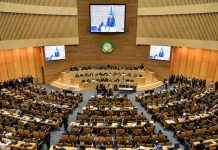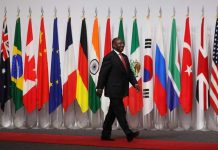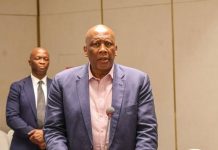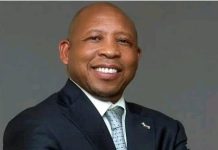Africa-Press – Lesotho. Last week there appeared to be a breakthrough in what will happen with the 2020/21 Vodacom Premier League season after clubs recommended to the Premier League Management Committee (PLMC) that the current campaign be ended.
According to officials present when the two parties met last Tuesday, top-flight clubs were clear in their wish this season be ended so that a new campaign can start next month.
That suggestion, after weeks of uncertainty, now has to be ratified by the Lesotho Football Association’s (LEFA) national executive committee (NEC) which will make the final decision on the 2020/21 season.
What happens next will interest the fans countrywide who have missed the game since it was shut down in mid-July when the government stopped contact sports in an effort to curb Covid-19 infections.
Even more importantly, whatever decision the NEC makes will affect the main stars of the show – the players, who have been stuck in limbo for the past month and the better part of a turbulent year.
This current break is the second of 2021 after the league was stopped from January until May for similar pandemic-related reasons and the situation has crippled clubs financially and forced them to slash spending.
The first to feel the cuts have been the players. In July, for example, giants Lioli cut players’ salaries by half once more after shrinking them in June last year. Lioli are not the only club feeling the pinch and at least their players are still getting something.
In many cases players who rely on their football income now have nothing to lean on and have been forced to live week-to-week while hoping the league will return soon.
The league’s also-rans have no parachutes like Lioli do, and what happens in the coming weeks will affect their players to a serious degree. It is a stressful time.
Not only are you dealing with isolation, you are also unsure of what your future holds. Last week Matlama midfielder Makume Theletsane became the first player to openly talk about how he has been affected by the pandemic.
Theletsane spoke candidly about his isolation last month when he contracted the virus. “It’s not a normal situation,” he said. “You get stressed and the only thing I was doing during that time was watching TV and playing video games all the time.
Theletsane’s comments are rare because it is taboo in football, and perhaps Lesotho in general, to speak about anything related to mental health.
One common theme during this uncommon time has been the players’ silence when it comes to their experiences of the pandemic. But, something does not add up.
Around the world there has been a rise in mental issues since the coronavirus outbreak and although there are no statistics for Lesotho, it shouldn’t be any different.
What is different is that when it comes to football players and athletes in general, there are no support structures for them and in addition to the possible stigma of speaking up.
The International Federation of Professional Footballers (FIFPRO) and player associations around the world, for example, have been providing players with advice to look after their mental health.
In June, FIFPRO officially launched a mental health awareness programme titled “Are you ready to talk?”
In its research FIFPRO showed that up to 38 percent of footballers suffer from mental health symptoms during their career and the number of players experiencing difficulties have increased with the onset of the Covid-19 pandemic
In Lesotho, Covid-19 has disrupted players’ routines and training for months and has undermined a major pillar of their identity. It is also threatening their livelihoods and that is something the league and LEFA have to consider going forward because it falls under the question of how the game can be improved to serve the players better.
Lesotho remains miles behind even its regional counterparts because, even in 2021, football is at the amateur level and players don’t get adequately compensated.
When the league is inactive as it is now, players don’t have an income or something to do and the socio-economic problems surrounding them are exacerbated.
Even so, as LEFA heads into its congress meeting this Saturday, we still do not hear anything about any programmes to offer relief to athletes. In some ways this is a ticking time-bomb of young men and women who may turn to harmful activities or habits to get by.
The longer the country’s football, and sport as a whole, is offline, the more stranded the players become. It is one aspect of the lagging decision-making process that is being forgotten.
For the first time ever, these young athletes are having to cope with social isolation, the suspension of their working lives and serious doubts about their future.
These players’ livelihoods could hinge on what happens in the coming weeks and that is incredibly stressful for them. What are the country’s football authorities doing to help them?
For More News And Analysis About Lesotho Follow Africa-Press






